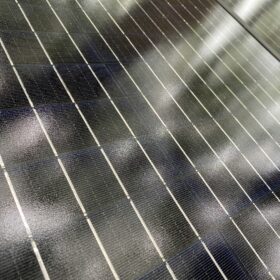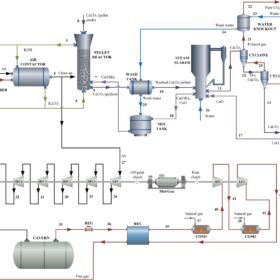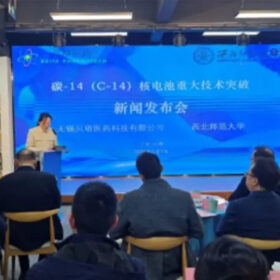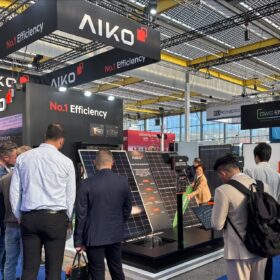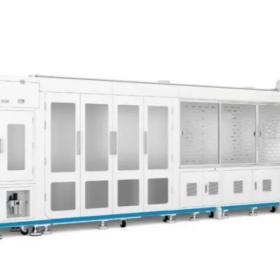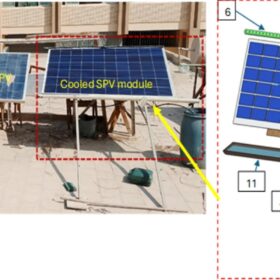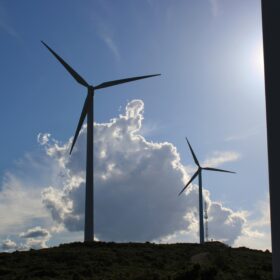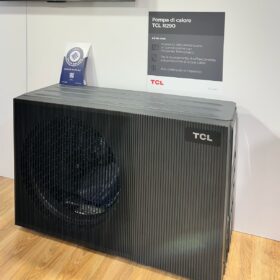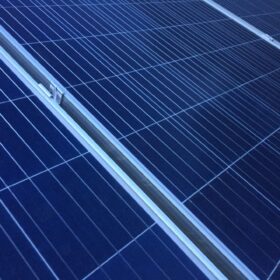Tilt angle has greatest impact on power losses caused by soiling
Scientists in China have analyzed the impact of soiling of PV module performance and have found that tilt angle has the greatest impact, followed by irradiance intensity and dust deposition density.
Combining liquid-based direct air capture with compressed air energy storage
Scientists in China have simulated a system that combines liquid-based direct air capture with diabatic compressed air energy storage, for the benefit of both processes. Exploring its economic feasibility, they found the system could achieve a levelized cost of energy of $0.53/kWh and a levelized cost of CO2 captured from air of $259/tCO2.
China unveils nuclear-powered battery with millennium-long lifespan
Beita Pharmatech and Northwest Normal University have develop a carbon-14 nuclear battery encased in silicon carbide, offering unprecedented longevity and application potential.
Aiko launches 500 W C&I back-contact solar module with 25% efficiency
The Chinese manufacturer launched its new Infinite panel at the Solar Solutions Amsterdam event in the Netherlands. The module measures 1,762 mm x 1,134 mm x 30 mm and has a temperature coefficient of -0.26%/C.
Autowell Technology unveils 0BB tool for multiple silicon PV module technologies
The equipment with a processing speed of up to 10,800 pcs/h can be used to upgrade existing super multi-busbar (SMBB) and multi-busbar (MBB) equipment made by China-based Wuxi Autowell Technology (ATW). It is suitable for tunnel oxide passivated contact (TOPCon), heterojunction (HJT), and back-contact (BC) cell technologies.
Experimental system cools PV panels while keeping them clean
Researchers had placed a cotton sheet on the back of a PV module, which was then made wet and cooled. On the front side, water was pumped water from a pipe in a way that kept the panel both cool and clean. Their experimental setup showed superior results compared to reference cooling technologies.
Chinese PV Industry Brief: Huaneng, TBEA announce GW-scale renewables clusters
TBEA says it will invest CNY 10.16 billion ($1.4 billion) in 3 GW of solar and wind projects with storage, backed by equity and syndicated loans, as part of plans to complete the solar plant by 2025 and wind project by 2026.
TCL launches propane heat pump for residential applications
The Chinese solar manufacturer entered the heat pump business with a new product that can reportedly provide hot water up to 75 C and achieve a coefficient of performance of up to 5.0. It uses propane as a refrigerant and has sound levels of 48 db(A) to 66 db(A).
Growatt releases all-in-one 8 kWh balcony storage system
The battery features four MPPTs and can take up to 2,600 W of PV input. It also has an AC nominal output power of 800 W.
China’s power reform could boost solar module demand, prices, says S&P Global
Analysis by S&P Global suggests new power pricing measures in China could bring a rush of new installations in the country during the first half of the year and lead to an increase in solar module prices first domestically, then internationally.
